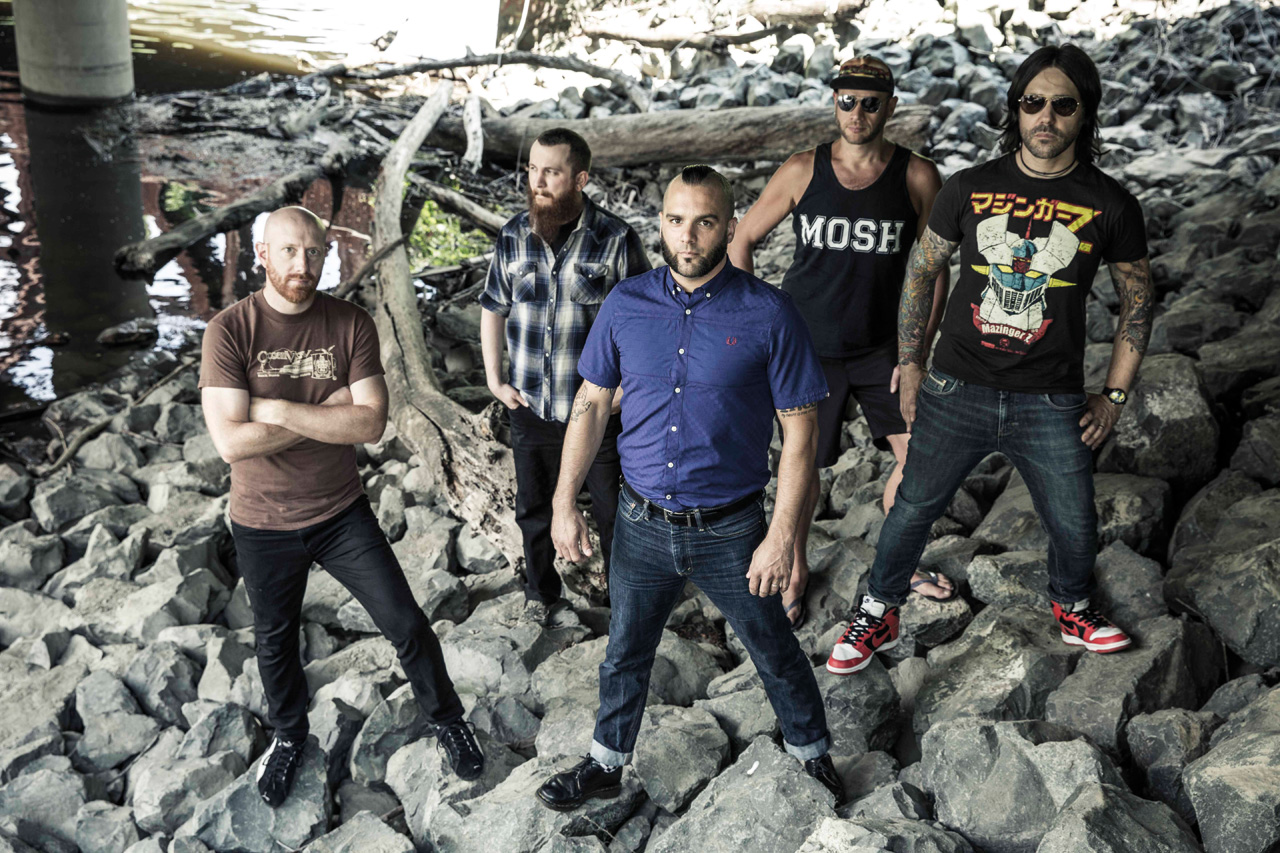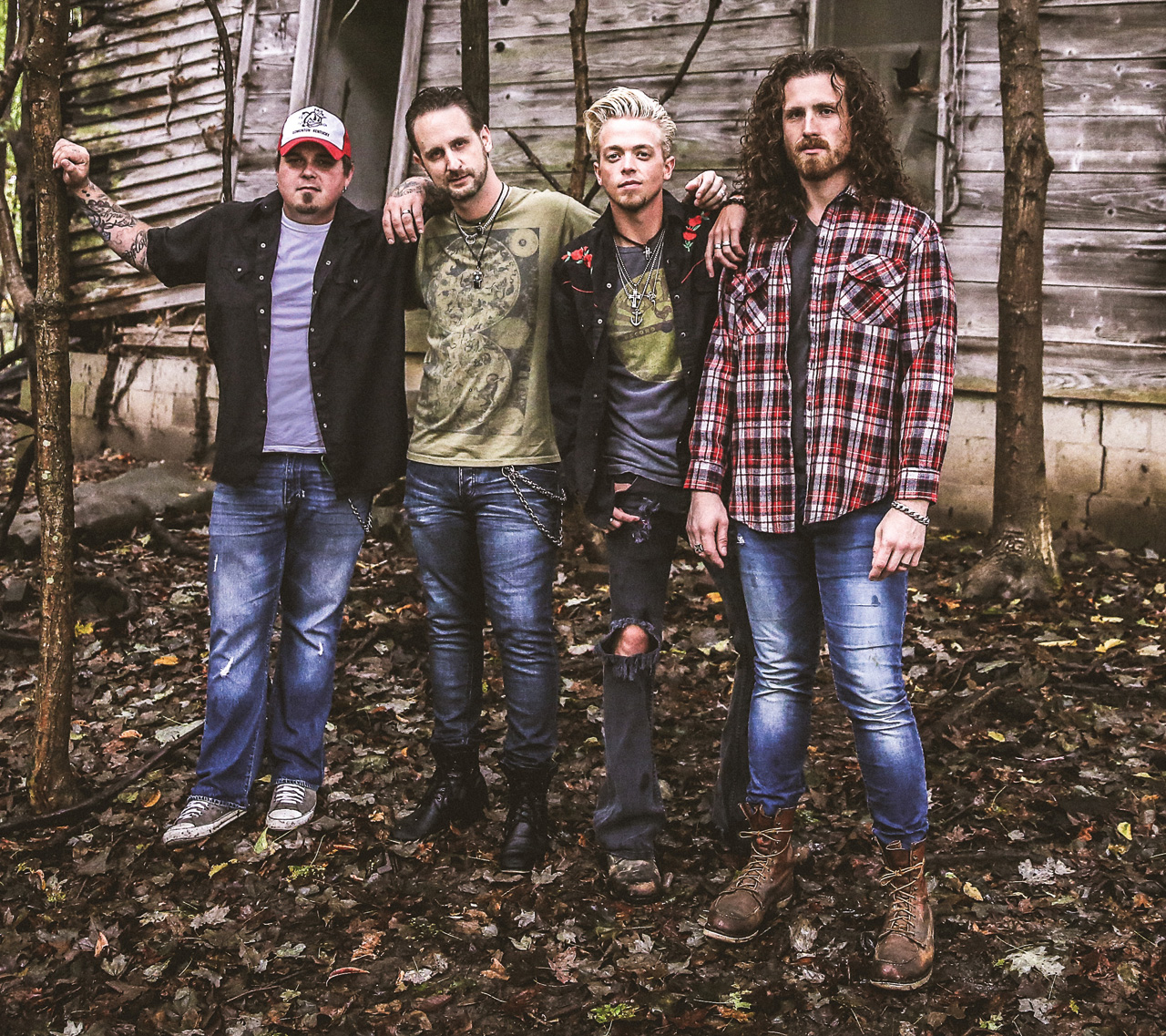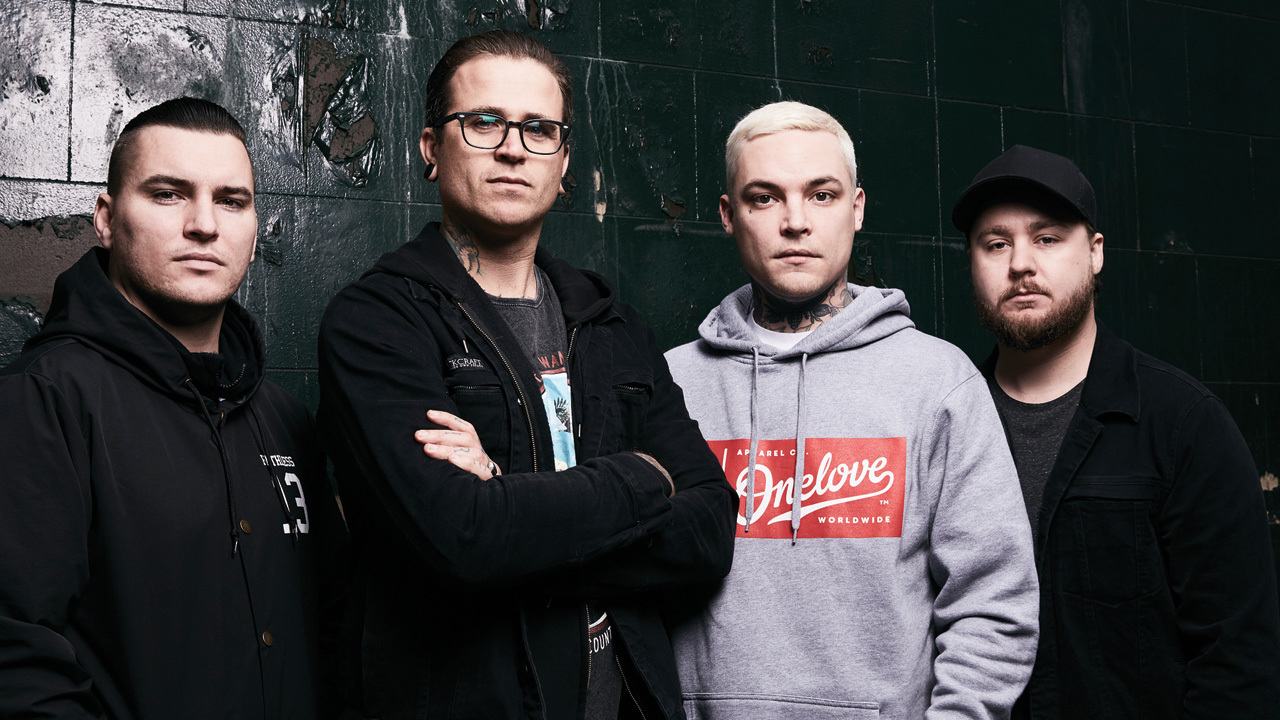“I felt like I was being strangled, but not by hands around my neck – by my life,” says Hacktivist’s Timfy James. It’s a harrowing turn of phrase to describe the depression he recently experienced, but sadly it’s a feeling many other people can relate to.
Statistics from the charity Mind show that 1 in 4 people in the UK will experience a mental health problem each year, but musicians are especially at risk.
In a recent study commissioned by the charity Help Musicians UK, called Can Music Make You Sick?, researchers anonymously surveyed more than 2,000 people across the music industry, from writers to roadies, but with a particular focus on musicians. The results weren’t pretty: 65% reported depression and 71% reported anxiety.
“The causes are certainly not medical,” explains Dr George Musgrave, a lecturer at the University Of Westminster who compiled the report with colleague Sally Anne Gross.
“We were asking about their perception of where it came from, and profoundly coming through in the findings is that making music is therapeutic, but trying to forge a career in music is quite cognitively destructive.”
For Timfy, that destruction came when he felt pressured to write a debut album that would live up to the hype generated by Hacktivist’s self-titled EP.
Released in 2012, it won them a clutch of festival appearances and high-profile support slots, including a date with Korn at the 5,000-capacity Brixton O2 Academy. The weight of expectation, combined with two years of relentless touring, was too much for Timfy to handle. He contemplated leaving behind everything he’d worked so hard to create.
“I hit an ultimate low, but I got so low I was making steps to depart from the band at that point,” he reveals. “I was completely stuck. This wasn’t just writers’ block – it affected different parts of my life.
"I cut myself off from people because I needed to concentrate on the music, but what I was really doing was keeping myself inside, and just getting deeper and deeper into this, because you spend so much time with yourself that you don’t know what you’re doing.
"I nearly walked away from everything that I ever wanted, and I know damn straight that I would have been more depressed if I’d let that happen.”

Finding yourself in a dark, introspective hole is a sentiment echoed by many artists we interviewed, and one of the most common symptoms of depression.
According to Mind, signs include feeling restless, guilty and empty. And while these symptoms are psychological, and not immediately apparent to outsiders, physical acts of self-harm, weight fluctuation and an increased intake of alcohol and drugs can be warning signs.
Having dealt with depression since he was a child, Black Stone Cherry frontman Chris Robertson held in his childhood angst and “all the bullshit that comes with what I do for a living” until it finally came to a head in 2011, around the making of their third album, Between The Devil & The Deep Blue Sea.
“I would sit around and cry and literally pull my hair out,” he remembers. “I got to a point where I didn’t want to live any more, so I grabbed my shotgun, a notebook, and was going to my truck to go out to a place where I remember being happy as a kid.
"I was gonna write my family a letter, let them know it wasn’t their fault, and do it. I got a couple of steps from my truck and something came over me; I started crying and went back in the house. I sold the gun and the truck that week, and that was the moment where I had to get some help and do something.”
Backing up Dr Musgrave’s theory, Chris explains it was the demands of his job that pushed him to the limits. Making music has always helped him process his feelings, but the ruthless industry had worn him down.
“Being a musician didn’t cause me to further my depression, being in the music business furthered my depression,” says Chris.
“Being a musician is one of my truest escapes from depression, but it’s all the other shit that comes with it, like record labels being demanding, and the things that you have to do for people that you don’t want to, or things you feel against but know you have to do to better your family. Those are the things that end up pushing people over the edge.”
In our society, death is still a taboo subject, and especially if the cause is suicide. Yet according to the Samaritans, there were more than 6,500 suicides in 2014 in the UK alone.
This is a staggering number, and shines a light on how many people are struggling with suicidal thoughts every day. When it comes to musicians, the picture is especially bleak for those playing heavy metal.
In her 2015 article Music To Die For: How Genre Affects Popular Musicians’ Life Expectancy, Professor Dianna Kenny from the University of Sydney studied 12,665 artists from all popular genres of music who died between 1950 and June 2014. The results for metal musicians weren’t good, with almost 20% dying by suicide – higher than any other genre.
When we ask Dianna why she believes heavy music has such a long and complex relationship with depression, she outlines the common (if often misunderstood) viewpoint that many struggling young people are “attracted to the message of heavy metal music”, and it’s true that most bands will share anecdotes of thousands of fans who have found solace in their songs.
Interestingly, however, she also reveals feedback she’s had from musicians that points towards the stresses of dealing with multiple business people and the daily grind of life on the road.
“The main message that I’m hearing from musicians is the producer, agents, venues – all these people – are making money off the back of the musicians, and they haven’t got time for hand-holding and caring,” says Dianna.
“I think it’s an absence of intimate relationships on tour. These young people often have no shoulder to lay their head on, and they’re already vulnerable going into the profession.

Among the artists we spoke to, the common thread is that the lifestyle of a touring band is a major cause of negative mental wellbeing. It isn’t just the hectic schedule of playing shows for an hour a night for 20 nights in a row – that should be the fun part – it’s the thousands of hours you spend living in fear that if the bubble bursts, then your life is over.
Few young bands make money on tours; they’re done out of necessity to generate interest and gain momentum, and maybe sell some shirts. But without financial support or job security, it’s a terrifying tightrope to walk. The demand of the business doesn’t allow you to have a break. You cannot fail and you cannot stop. It’s a conveyer-belt of responsibilities.
“So many musicians have called it quits because they can’t take the strain on their mental health,” says The Amity Affliction’s Joel Birch, who sought help after a suicide attempt. “It’s a case of not being allowed a sick day in music, especially in a band – I feel like the bands are on the lowest rung of the ladder. It’s like push on or fuck off, and if this is where you want to forge a career then you push on, whether it’s good for you or not.”
It’s well-documented that bands often turn to drugs and alcohol on the road. Joel has been alcohol-free for more than nine months, following Alcoholics Anonymous and therapy sessions, but is acutely aware of how the rockstar lifestyle can increase destructive behaviour.
“We don’t have a stable life, and it’s a routine that’s not always a positive one: wake up, drink, perform, drink more, snort, go to bed. When you’re not in a good way and you still have to put on a brave face for people, it can be to your own detriment.”
Killswitch Engage’s Jesse Leach began battling depression in the early 00s. As his band soared in popularity, his mental wellbeing deteriorated and he eventually quit, before returning in 2012. He, too, has struggled on tour.
“If I start freaking out… I become crazy and angry and manic, and that’s before a crash,” he says. “I have a full-on anxiety attack and I won’t leave my bed for days. It happened on [our last UK tour], and the worst thing in the world is trying to get onstage and perform when all you really want to do is just have the covers over your head.”
So what can musicians do? Timfy reckons it’s a matter of being honest with yourself, your bandmates and your fans. It’s openly admitting that you’re having problems, so you can start taking steps to tackle them. That’s what worked for him.
“A lot of bands don’t want their fans to know they’re struggling,” he admits, “but I don’t think there’s anything wrong with that – we’re all human. People think that bands aren’t human and they can take anything, and because you’re a touring band you’re rich, but it’s not that way anymore.
"We’re living in a new world now, and it’s quite a dark one. Musicians need to know that it’s alright to be like that. A lot of musicians don’t even know that they’re going through it, because depression can be very masked. There are probably members of bands who are depressed but don’t know how to tell each other.”
Seeking help is key to mental wellbeing, as is talking about your feelings no matter how that may be perceived by your friends and family. Joel thought something might be wrong but didn’t act on it, because “I had people telling me I was being a pussy.”
He spoke up and now goes to therapy. Shortly after Chris broke down, he went to see a psychiatrist and “opened up like a book”, and also found that daily medication helped. Jesse, on the other hand, has a slightly different tactic: “Low doses of medical marijuana and low doses of psychedelic mushrooms have been an absolute game-changer for me,” he reveals.

While Jesse’s approach is more liberal than most, it’s the idea of creating a dialogue and having frank conversations that needs hammering home. Artists aren’t superhuman – they’re real people with real emotions, and aren’t always treated as such.
Touring is tiring, the money ain’t great, and there are millions of people on the internet just waiting to tell you how crap you are. But the stigma needs to be broken, because the cliché of being a tortured artist helps no one. By speaking out, artists can even help others who are suffering, too.
“Bands can help people and people can help bands,” says Timfy. “Bands can reach out to people with depression.
People have messaged us personally saying, ‘I’d just like to say that you’ve actually stopped me from ending my own life, because you’ve given me something to believe in.’ And I was completely speechless, and will remain to be when people say that.”
Everyone agrees that change is needed – from alerting musicians to the mental health hazards of their industry, to discussing them, to taking steps to mitigate them.
“Nobody trains up young gymnasts and says that they’re never going to break a bone – you prepare them for the fact that they’re going to get injured,” says Dr Musgrave.
“We’re trying to shine a preliminary light on what is happening in music to say that these people aren’t all mardy, writing songs because they’re depressive. It’s important to have a wider understanding that being an artist you get a torrent of shit thrown at you all the time, and that’s not always a great place to be.”
Following the research, Dr Musgrave is planning to make public policy recommendations to NGOs (non-governmental organisations), about what can be done to help.
Half of the people surveyed by Help Musicians UK called for a dedicated counselling service for musicians. “It’s a real issue,” he says. “It’s not made up by long-haired, guitar-playing ‘emos’ – this is a real epidemic of people feeling anxious and depressed.”
“It’s a gruelling, cut-throat business – there’s no way around it,” states Chris. “I think people need to be there for each other. We’re never going to change the music business and how it works, because at the end of the day it’s all about money, and people will do anything to make money. I think if more people spoke out about depression in general, more people would be willing to open up.”
“It’s such a weird industry,” Joel concludes. “You’ve got these people that are worshipped for doing what they’re doing, but they’re not allowed to be vulnerable. The music industry as a whole is quite closed off and doesn’t want to hear about it. It’s like, ‘Get on with your fucking job and sort it out later.’
"And some people don’t sort it out later, so they die from suicide or overdoses or completely lose their minds. There’s a lot of hushed issues in music that need to be brought to the fore and talked about.”
Seeking help
If you would like to know more about mental health problems, or are looking for someone to talk to, the following organisations can offer support
Mind
Based throughout the UK, Mind provides advice to anyone experiencing mental health problems. Services include talking therapies, crisis helplines, drop-in centres, employment and training schemes, counselling and befriending.
www.mind.org.uk | 0300 123 3393 | info@mind.org.uk | Text: 86463
Samaritans
Samaritans offer a confidential, non-judgmental service for people to talk through their worries. It’s free to call at any time, day or night.
www.samaritans.org | 116 123 | jo@samaritans.org
Help Musicians UK
The charity is leading a campaign to find solutions to mental health issues in the music industry. It offers advice and support to musicians of all genres and stature, including those who suffer from long-term problems or have recently hit a crisis in their life.
www.helpmusicians.org.uk | 020 7239 9103 | help@helpmusicians.org.uk
